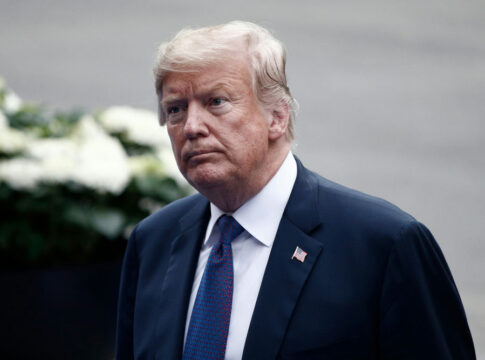Why did Bryan Kohberger commit such a heinous crime? Even President Trump is demanding answers.
The Brutal Murder Case That Shocked the Nation
On November 13, 2022, the small college town of Moscow, Idaho, was rocked by the brutal murders of four University of Idaho students: Kaylee Goncalves, Madison Mogen, Xana Kernodle, and Ethan Chapin. The randomness and brutality of the crime captured national attention and led to a massive investigation involving law enforcement agencies from multiple states. The case became one of the most high-profile murder investigations in recent U.S. history.
Bryan Kohberger, a criminology Ph.D. student at Washington State University, was eventually arrested on December 30, 2022, in Pennsylvania. He was extradited to Idaho, where he faced charges linked to DNA evidence, surveillance footage, and cell phone data connecting him to the crime scene. Despite the evidence, the motive behind Kohberger’s actions remains a mystery, leaving many, including the victims’ families, searching for answers.
Trump Demands Answers
President Donald Trump has not shied away from expressing his frustration over the case. As Kohberger pleaded guilty on July 2, 2025, to avoid the death penalty, Trump took to Truth Social, questioning why Kohberger was allowed to plea bargain without providing a motive. Trump’s demand for answers echoes the public’s sentiment, as many are left wondering why such a vicious crime was committed.
President Trump just posted about the Bryan Kohberger sentencing — saying he hopes the judge "makes Kohberger, at a minimum, explain why he did these horrible murders." pic.twitter.com/zxDVDEmffg
— Brian Entin (@BrianEntin) July 21, 2025
The plea deal, which results in four consecutive life sentences for Kohberger, has sparked controversy. While some victims’ families support the deal for avoiding a lengthy trial, others feel justice was not fully served without a trial and a public explanation of the motive. The decision to spare Kohberger’s life in exchange for his guilty plea remains a contentious issue.
The Plea Deal and Its Implications
The plea deal, accepted by Kohberger, avoided a potentially long and emotionally taxing trial for the victims’ families and the Moscow community. However, the lack of a clear motive continues to be a point of contention. The judge overseeing the case, John C. Hippler, can require Kohberger to explain his motive during sentencing, but it remains unclear if Kohberger will provide any insights.
Trump wades into Bryan Kohberger murder case, demands answers on why he did it: ‘There are no explanations’ https://t.co/TRGf9YzIhe pic.twitter.com/0rGPz4QQQu
— New York Post (@nypost) July 21, 2025
With the gag order lifted on July 17, 2025, law enforcement and other stakeholders can finally speak publicly about the case. This development may offer some transparency, but the primary unanswered question—the motive—continues to elude everyone involved. Kohberger’s sentencing is scheduled for July 23, 2025, where he will receive multiple life sentences without the possibility of parole.
The Long Road Ahead
The Kohberger case has already influenced discussions about plea bargains in high-profile murder cases, particularly those involving capital punishment. The debate over whether defendants should be required to explain their motives as part of sentencing may shape future legal proceedings. As the nation watches, the victims’ families, the University of Idaho community, and the broader public continue to grapple with the trauma and unanswered questions left in the wake of this horrific crime.
This case underscores the need for stronger campus security measures and a deeper understanding of criminal behavior, especially in academic settings. As we await Kohberger’s sentencing, the hope for answers remains, but the reality is that closure may be elusive for the families and communities affected by this tragedy.


